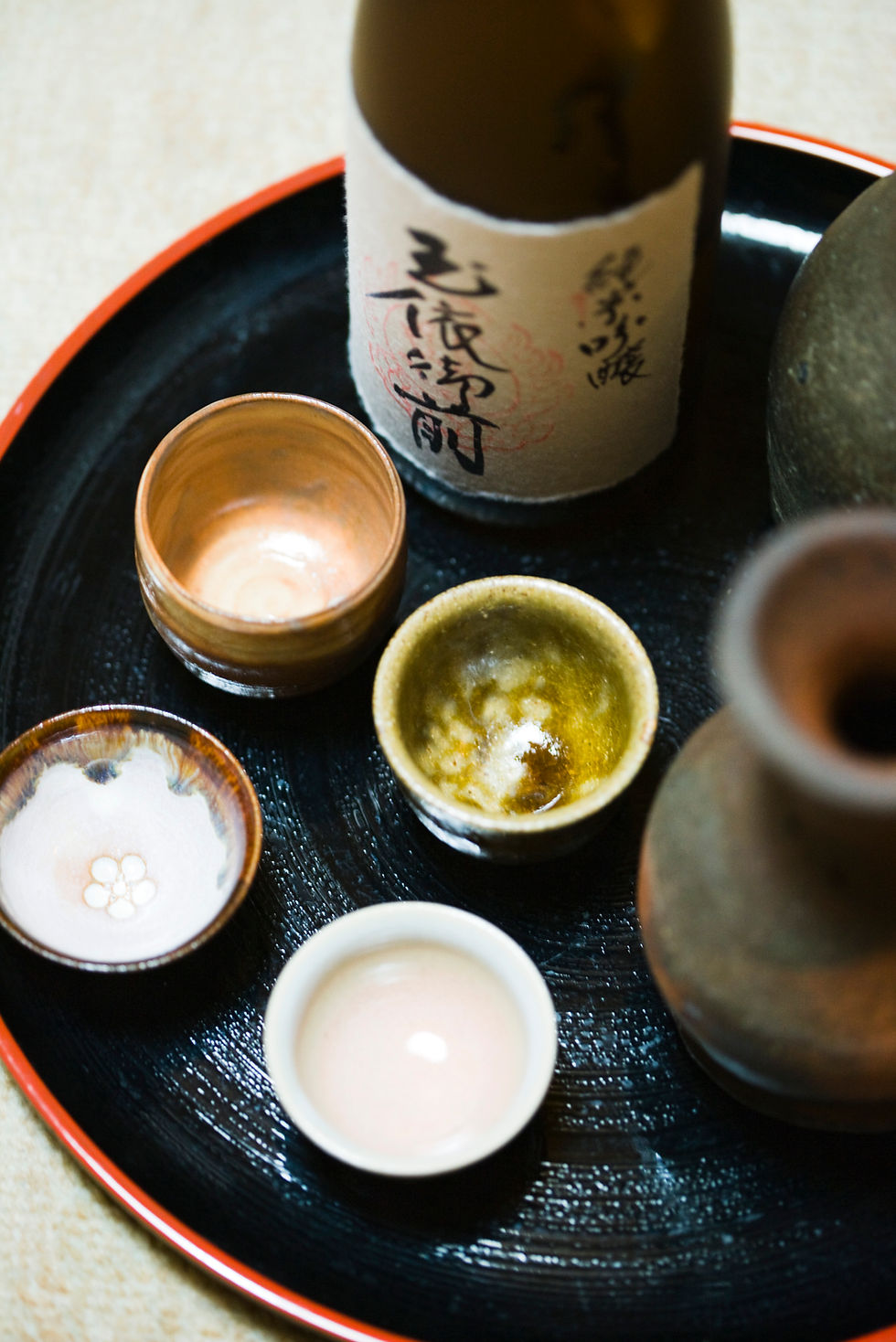Ji-Beer & Ji-Zake... What's "Ji" Difference?
- Greg Beck

- May 25, 2021
- 2 min read
Updated: Jun 4, 2021
There is beer, and there is Craft Beer.
But what about Sake?
Like beer all over the world, industrial-scale Sake also exists. Often sold in paper cartons, like boxed wine or milk cartons, the majority of these products are never imported to America. Nevertheless, most of what gets bought, sold, and served in America are still mass-produced products by Ozeki, Gekkeikan, Sho Chiku Bai, and Yaegaki, to name a few.
Unlike Beer, the style-guidelines for Sake are more strictly enforced. Budweiser can make a beer as cheaply and poorly as they like and label it "IPA". But Sake terms like Honjozo, Junmai, or Daiginjo belong to a class of Sake that is referred to as Tokutei Meisho-shu.

Renowned Sake brewer Philip Harper most accurately translates this as "Special Designation Sake(s)", and in America this is marketed as "Premium Sake". Another fitting descriptor for this is "Craft Sake". Only the best ingredients in designated quantities can be used, with many other restrictions on what claims must and must not be made.
So What's "Ji" Difference?
In Japanese, sometimes Craft beer is referred to as Ji-Beer, a term that has existed for several decades now, referring to local beer. Because of this rough translation for craft beer, Ji-zake (also meaning local Sake) has been translated back into English as "Craft Sake".
"Ji" Terroir
Remembering beer styles are less rules than guides, and premium Sake carries all kinds of rules and restrictions, there is something lost in translation when just calling Ji-zake "Craft Sake". In order to call beer "craft" it simply needs to be of a premium quality or specially manufactured. The grain can come from Germany, the hops from New Zealand, and the yeast from England, but if it's brewed in L.A., it's an L.A. craft beer.
Not so with Ji-zake. Ji-zake must express the Terroir - the taste of the region, if I may - by using ingredients sourced from that region. All Tokutei Meisho-shu are premium, craft, and "special designation", and artistic expression of the brewery. Just remember that when talking about Ji-zake, the brewery is going the extra step of locally sourcing ingredients to express a unique flavor that can only be achieved by that brewer in that place.
Does Terroir Matter to You?
Do you have an event or menu you want to express these values? SAKESECRET can help:
Get involved! Have any burning questions? Hear something about Craft or Ji-zake that didn't make sense? Feel free to comment below, or continue the conversation on
Kanpai!








Comments